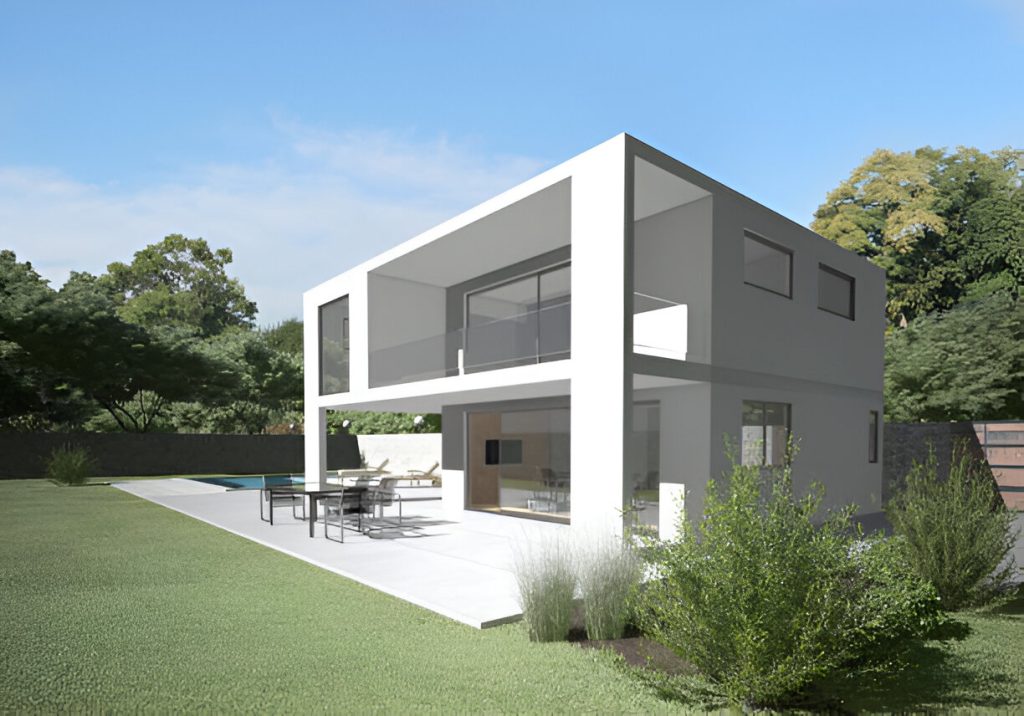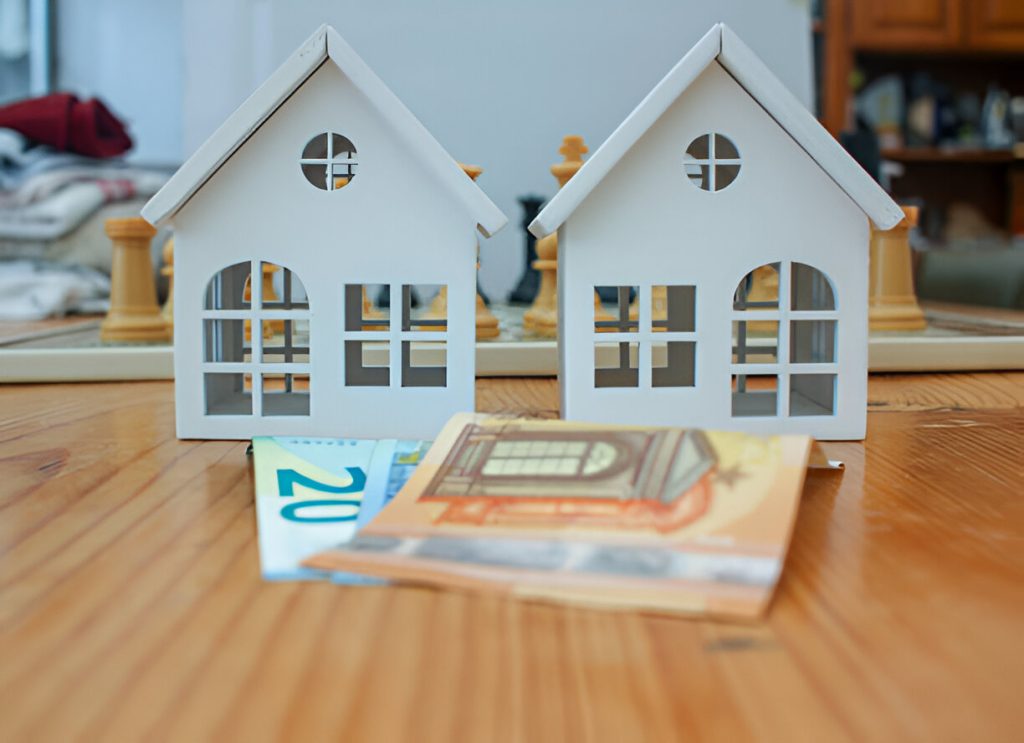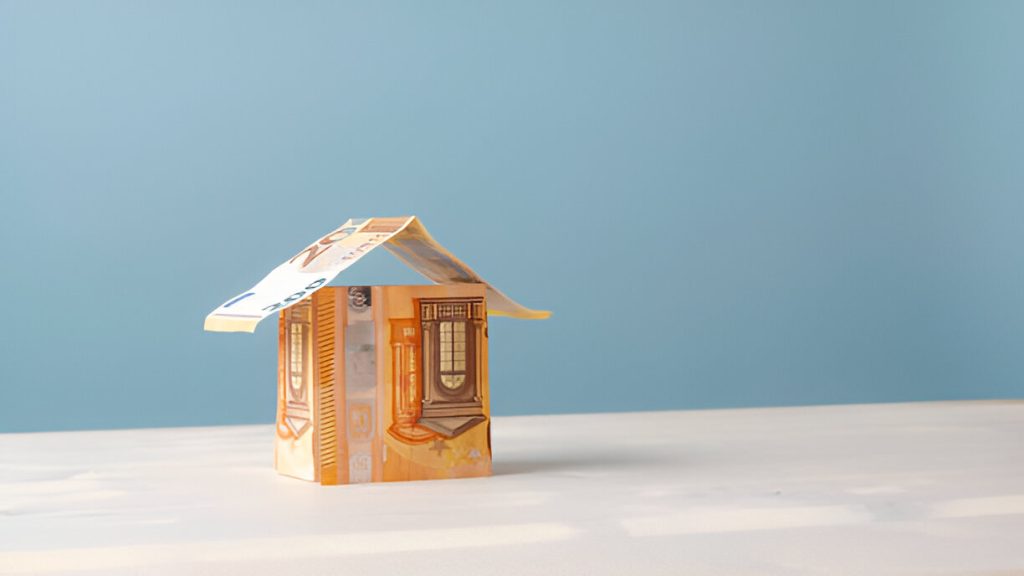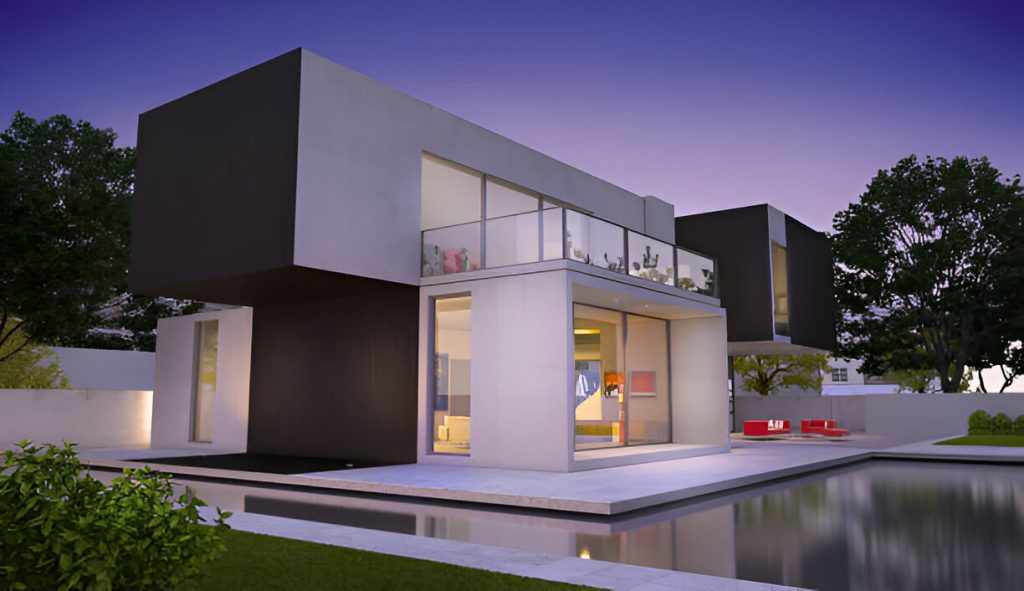
Build a house in Spain can be an exciting adventure! If you’ve ever dreamed of having your own home in the beautiful landscapes of Spain, you’re not alone. It’s a chance to create a space that reflects your style and needs. However, before you dive in, it’s important to know what to expect. From finding the right land to navigating the legal processes, there are several steps involved. Don’t worry; this guide will help you through the journey, making it easier to turn your dream into reality.
What Kind of Land Should You Look For When Build a House in Spain?
When you’re dreaming of build a house in Spain, one of the first steps is finding the right piece of land. The location, size, and characteristics of the land can significantly impact your future home. So, let’s explore what to look for when you’re on the hunt for the perfect plot in this beautiful country.
Location Is Everything
Think about where you want to plant your roots. Do you envision a cozy retreat in the countryside or a vibrant home in the heart of a bustling town? Spain offers a variety of locations, from the sun-soaked beaches of the Costa del Sol to the serene mountains of the Pyrenees. Each area has its own charm and lifestyle. Consider proximity to schools, shops, and medical facilities if you plan to live there long-term. If you’re thinking of a vacation home, perhaps you want something close to recreational activities like hiking, skiing, or the beach. The right location can make all the difference in your daily life and your property’s value.
Land Size Matters
How much space do you need? The size of the land will dictate not just the size of your home but also your outdoor space. Are you dreaming of a sprawling garden for summer barbecues or a small terrace for enjoying morning coffee? Think about how much space you want for landscaping, a pool, or even a garage. Additionally, remember that larger plots can offer more privacy, but they might also require more maintenance. Balancing your desires with practical upkeep is crucial.
Check the Zoning Regulations
Before you get too attached to a piece of land, check the local zoning regulations. Different areas in Spain have specific rules about what can be built and how. Some plots may only allow residential homes, while others might permit commercial use. Understanding these rules will help you avoid future headaches. You wouldn’t want to find out after you’ve bought the land that you can’t build what you envisioned! So, make sure you know what’s allowed in your chosen area.
Soil Quality and Topography
The quality of the soil and the topography of the land are often overlooked but can be crucial factors. Good soil is vital for the stability of your home and landscaping. If the ground is rocky or has a lot of clay, it might be challenging to build on. Similarly, consider the land’s slope. A gently sloping lot can be excellent for drainage, but a steep hillside might pose challenges. It’s wise to consult with a local architect or builder to assess the land’s suitability for your dream home.
Accessibility and Infrastructure
Think about how you’ll get to and from your new home. Is the land easily accessible by road? Are there public transport options nearby? Good infrastructure not only makes life easier but also affects property values. A piece of land that feels secluded might seem appealing, but if it’s hard to reach, it could be a hassle in the long run. Additionally, check for access to utilities like water, electricity, and internet services. You don’t want to fall in love with a piece of land only to find that connecting it to essential services will be a costly and lengthy process.
Natural Surroundings and Views
Finally, take a moment to appreciate the natural surroundings and potential views from your future home. Spain is known for its stunning landscapes, whether it’s the dramatic cliffs of the Costa Brava or the lush greenery of the Basque Country. The views can greatly enhance your living experience, making every day feel like a vacation. Picture yourself sipping a glass of wine on your terrace while soaking in the scenery. Finding a plot that offers breathtaking views can add significant value to your property and elevate your quality of life.
Finding the right land for your future home in Spain is an exciting journey. By focusing on location, size, zoning regulations, soil quality, accessibility, and natural surroundings, you can ensure that your dream home is built on a solid foundation—literally and figuratively. As you embark on this adventure, keep these factors in mind to create a space that truly feels like home. Happy house hunting!
What Legal Steps Do You Need to Take to Buy Property in Spain at the Construction Stage?
Purchasing property in Spain, especially at the construction stage, involves several legal steps that can seem daunting at first. However, understanding these steps can make the process smoother and help you secure your dream home. Let’s break it down into manageable parts.

Research the Developer and Project
Before diving into the paperwork, do your homework on the developer. Investigate their reputation and track record. Are they known for delivering quality projects on time? Look for reviews or testimonials from previous buyers. If possible, visit some of their completed projects. Additionally, ensure the construction project has the necessary licenses and permits. This is crucial to avoid potential legal issues down the road.
Get a Spanish Tax Identification Number
To buy property in Spain, you’ll need a Spanish Tax Identification Number (NIE). This number is essential for any financial transactions, including purchasing real estate. You can obtain an NIE through the Spanish consulate in your home country or directly in Spain. The process typically involves filling out an application form, providing identification, and paying a small fee. Having your NIE ready will make subsequent steps much more manageable.
Hire a Qualified Lawyer
Engaging a lawyer who specializes in Spanish real estate law is one of the smartest moves you can make. A lawyer can help you navigate the complexities of the legal system, ensuring you comply with all requirements. They can review contracts, conduct due diligence on the property, and protect your interests throughout the buying process. Look for someone who speaks your language and has experience with property purchases at the construction stage.
Review the Purchase Contract
Once you find a property you like, you’ll be presented with a purchase contract. This document outlines the terms of the sale, including the price, payment schedule, and completion date. It’s essential to read this contract thoroughly, and your lawyer can assist with this. Ensure it includes important clauses such as the developer’s obligations, penalties for delays, and your rights if the project is not completed as agreed. If anything seems unclear, don’t hesitate to ask for clarification.
Make a Reservation Payment
To secure your future property, you’ll typically need to make a reservation payment. This amount is usually around 3,000 to 6,000 euros and shows your commitment to purchasing the property. Keep in mind that this payment is often non-refundable unless specified otherwise in the contract. Ensure you receive a receipt for this payment, as it will serve as proof of your intent to purchase.
Sign the Private Purchase Contract
After the reservation payment, you’ll sign a private purchase contract. This is a legally binding agreement between you and the developer. The contract should outline all the details of the sale, including the purchase price, payment schedule, and the expected completion date. At this stage, you’ll also need to pay a percentage of the total price, typically between 10% and 30%. Ensure your lawyer reviews this contract to protect your interests.
Apply for a Mortgage (If Needed)
If you require financing to complete your purchase, now is the time to apply for a mortgage. Research various banks and financial institutions to find the best rates and terms. The lender will usually require documentation such as proof of income, credit history, and details about the property. Having your mortgage pre-approved can simplify the process and give you a clear budget.
Complete the Purchase at the Notary
The final step involves completing the purchase at a notary’s office. This is where the official transfer of ownership occurs. You’ll need to provide your NIE, identification, and proof of payments made. The notary will read the contract aloud, ensuring you fully understand the terms. Once everything is in order, you’ll sign the deeds, and the property will officially be yours. Don’t forget to request a copy of the signed deeds for your records.
Register the Property
After the purchase, you must register the property with the Land Registry (Registro de la Propiedad). This step is crucial as it protects your ownership rights. Your lawyer can assist with this process, ensuring all necessary documents are submitted correctly. Registration typically involves paying a small fee based on the property’s value.
Buying property in Spain at the construction stage may seem overwhelming, but by following these legal steps, you can navigate the process confidently. Remember to conduct thorough research, hire a qualified lawyer, and ensure all contracts are clear and binding. With the right preparation and support, you’ll be well on your way to owning your dream home in sunny Spain. Enjoy the journey!
What Are the Costs Involved in Buying a House from Spain?
Purchasing a home in Spain can be an exciting adventure, but it’s important to be aware of the various costs involved in the process. From property taxes to legal fees, understanding these expenses can help you budget effectively and avoid any surprises along the way. Let’s explore the key costs you should consider when buying a house in Spain.

Purchase Price of the Property
The most obvious cost is the purchase price of the property itself. This is the amount you agree to pay the seller, which can vary widely based on the location, size, and condition of the house. It’s essential to do your research to determine the average property prices in your desired area. Working with a local real estate agent can help you find a property that fits your budget while also meeting your needs.
Property Transfer Tax
In Spain, buyers must pay a property transfer tax (Impuesto de Transmisiones Patrimoniales, or ITP) when purchasing an existing home. The tax rate varies by region, but it typically ranges from 6% to 10% of the property’s purchase price. New properties are subject to VAT (Value Added Tax) instead of ITP, which is usually 10% for residential properties and 21% for commercial properties. Make sure to budget for this tax as it can be a significant expense.
Notary and Registration Fees
When finalizing the purchase, you’ll need to visit a notary, who will oversee the signing of the property deeds. Notary fees can vary, but you can expect to pay between 0.1% and 0.5% of the property price. Additionally, you’ll need to register the property with the Land Registry, which incurs another fee. Registration costs usually amount to around 1% of the purchase price. These fees are necessary to ensure your ownership is legally recognized.
Legal Fees
Hiring a lawyer to assist with the property purchase is highly recommended, especially for foreigners. Legal fees typically range from 1% to 2% of the property’s purchase price. A lawyer can help you navigate the legal complexities, review contracts, and ensure that all documents are in order. Their expertise can save you time and potential headaches, making the investment well worth it.
Mortgage Costs
If you plan to finance your home purchase with a mortgage, you should consider additional costs associated with borrowing. These may include:
- Arrangement fees: Lenders may charge a fee for setting up your mortgage, usually around 1% of the loan amount.
- Valuation fees: Before approving your mortgage, the bank will require a property valuation, which can cost anywhere from 300 to 600 euros.
- Insurance: Most lenders will require home insurance, and you’ll want to factor this into your monthly expenses.
Homeowners Association Fees
If you purchase a property in a community or development, there may be homeowners association (HOA) fees. These fees cover the maintenance of common areas, such as gardens, pools, and communal facilities. HOA fees can vary widely depending on the amenities offered and the size of the community, so be sure to inquire about them before purchasing.
Moving and Renovation Costs
Don’t forget to budget for moving costs, which can include hiring movers, purchasing packing supplies, and possibly renting a storage unit. If the property requires renovations or updates, you’ll need to factor in those costs as well. It’s wise to get estimates from contractors to have a better idea of what to expect.
Ongoing Costs of Ownership
Once you own the property, you’ll have ongoing costs to consider, such as:
- Property taxes: These vary by location and are usually calculated based on the property’s cadastral value.
- Utilities: Monthly expenses for water, electricity, gas, and internet will need to be budgeted.
- Maintenance and repairs: Regular upkeep is essential to protect your investment, so set aside funds for unexpected repairs.
Buying a house in Spain involves several costs beyond the purchase price, including property transfer taxes, notary and registration fees, legal fees, and ongoing expenses. By understanding these costs upfront, you can plan your budget effectively and ensure a smoother buying process. It’s always a good idea to consult with professionals, such as real estate agents and lawyers, to get a comprehensive understanding of the costs associated with your property purchase. With careful planning, you’ll be well on your way to enjoying your new home in sunny Spain!
How Long Will It Take to Build Your House in Spain?
Building a house is an exciting venture, but one common question that many prospective homeowners have is, “How long will it take?†The timeline for constructing a home in Spain can vary significantly based on several factors. Let’s break down the elements that influence the construction duration, keeping in mind that Charfort can guide you through this process.

Type of Construction
The type of construction you choose plays a crucial role in determining the timeline. For example, traditional brick-and-mortar homes typically take longer to build than modular or prefabricated homes. While a modular home can be ready in a matter of months, a custom-built house may take anywhere from six months to over a year, depending on its complexity. Charfort can help you assess which option best suits your needs and timeline.
Permitting Process
Before construction can begin, you’ll need to obtain the necessary permits. In Spain, this process can take time, often several weeks to months, depending on the municipality and the specifics of your project. Factors such as zoning laws, environmental assessments, and local regulations can affect how long it takes to get approval. Engaging with Charfort means you’ll have experts to assist in expediting this process, ensuring that all paperwork is handled efficiently.
Design and Planning
Once permits are in place, the design and planning phase begins. If you’re working with an architect or a design team, the time spent on this stage can vary based on how detailed your plans are and any changes you might want to make. A well-defined plan can streamline the construction process, while multiple revisions can extend the timeline. Collaborating with Charfort can provide you with the expertise needed to create a clear and efficient plan from the start.
Weather Conditions
In Spain, weather can significantly impact construction timelines. While most of the country enjoys a mild climate, rainy seasons or extreme heat can slow down work. It’s important to factor in local weather patterns when estimating your build time. For instance, if you’re building in a coastal region, be prepared for potential delays due to storms or high humidity. Charfort can help you select a construction schedule that considers these variables.
Construction Crew Availability
The availability of skilled labor is another factor that can influence the construction timeline. Depending on the location and the time of year, there may be a shortage of available workers, which can lead to delays. Ensure that you have a reliable contractor with a solid team to avoid potential hold-ups. Charfort can recommend reputable builders with a proven track record of completing projects on time.
Material Supply Chains
The availability of construction materials can also affect how long it takes to build your home. Supply chain issues, which can arise due to high demand or global events, may lead to delays in getting essential materials like concrete, wood, and roofing. Working with a contractor familiar with local suppliers can mitigate this risk. Charfort’s network can help you find reliable sources for quality materials to keep your project on track.
Final Inspections and Approvals
After construction is complete, your new home will require inspections and final approvals from local authorities. This step can take additional time, often a few weeks, depending on the municipality’s workload and specific requirements. Ensuring all inspections are scheduled promptly can help avoid unnecessary delays. Charfort’s knowledge of local regulations ensures that you’re well-prepared for this final stage.
How Do You Say «To Build» in Spanish and What Challenges Might You Face?
If you’re planning to build a home in Spain, knowing how to communicate effectively in Spanish is essential. The verb “to build†translates to “construir.†This term is fundamental for anyone involved in construction, whether you’re speaking with architects, contractors, or local authorities. But beyond the language, there are challenges you might face during the building process in Spain. Let’s take a closer look.

Language Barriers
While many people in Spain speak English, particularly in urban areas and tourist regions, language can still be a barrier, especially in more rural locations. Miscommunication can lead to misunderstandings about your project’s details, timelines, and budgets. If you’re not fluent in Spanish, consider hiring a translator or a bilingual project manager who can bridge the gap between you and your contractors or local officials.
Understanding Local Regulations
Building regulations in Spain can vary significantly by region, which can be challenging for foreigners to navigate. Each autonomous community has its own set of laws regarding construction, zoning, and environmental considerations. Ensuring that you comply with local regulations is crucial to avoid fines or legal issues. Working with professionals familiar with the specific requirements of your building location can save you time and hassle.
Securing Permits
Before construction can begin, you must secure the necessary permits. The process can be lengthy and involves submitting detailed plans and documentation to local authorities. Foreigners may find this process particularly complex due to varying regulations and language differences. Engaging with Charfort can help you streamline the permitting process and ensure that all paperwork is correctly submitted.
Financing Challenges
As a foreigner, obtaining financing for your construction project can be more complicated than for local residents. Banks may require additional documentation and a higher down payment, often between 30% and 40%. Additionally, understanding the terms of the mortgage can be challenging, especially if you’re not familiar with the local banking system. Having a local advisor or mortgage broker can assist you in navigating these financial waters.
Cultural Differences
Cultural differences can also play a significant role in the building process. Attitudes toward work schedules, project timelines, and communication styles may differ from what you’re used to. In Spain, for example, it’s common for projects to take longer than initially planned. This can be frustrating if you have specific deadlines. It’s important to approach these situations with flexibility and patience, understanding that building customs may not align with your expectations.
Construction Quality and Standards
Another challenge you may face is ensuring that the construction meets your quality standards. Different regions may have varying building materials, techniques, and quality standards. It’s essential to conduct thorough research on local builders and suppliers, looking for reviews or recommendations. Charfort can assist in connecting you with reputable contractors who are known for their quality workmanship.
In summary, “to build†translates to “construir†in Spanish, a key term to know when embarking on your construction journey in Spain. While building a home can be an exciting project, it comes with its share of challenges, including language barriers, navigating local regulations, securing permits, financing hurdles, and cultural differences. By working with professionals like Charfort and being prepared for these challenges, you can make the process smoother and more enjoyable. Embrace the adventure of building your dream home in Spain!
FAQs
What is the average cost to build a house in Spain?
The average cost ranges from €1,200 to €2,500 per square meter, depending on materials and location.
How long does it take to build a house in Spain?
It typically takes about 12 to 18 months from planning to completion, but delays can happen.
Do I need a lawyer when buying property in Spain?
Yes, hiring a local lawyer is essential to help you navigate legal processes and contracts.
Can I get a mortgage in Spain as a foreigner?
Yes, banks in Spain offer mortgages to foreigners, usually covering 60-70% of the total build cost.
What types of homes can I build in Spain?
You can build various types of homes, including single-family houses, villas, and even apartments, depending on local regulations.
Conclusion
Build a house in Spain is an exciting journey that can lead to your dream home. From finding the right land to understanding the costs and legalities, each step brings you closer to turning your vision into reality. With the right planning and support, you can successfully navigate the process and enjoy the beautiful lifestyle that Spain offers. So, are you ready to start your adventure in creating a home in this vibrant country?

